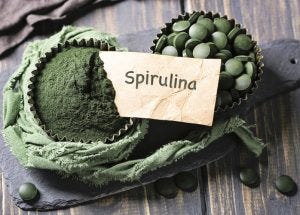
Spirulina-based antibody developer Lumen Biosciences will convert a bakehouse into a biologics plant capable of producing 15 kg per week of cGMP-grade drug substance.
Seattle, Washington-based Lumen turns spirulina – protein-rich cyanobacteria touted by many health enthusiasts as a ‘superfood’ – into tiny factories that churn out therapeutic antibodies.
To support the development of its candidates, the firm has expanded its manufacturing footprint by leasing a former bakery in the Fremont-Wallingford neighborhood of Seattle.

Image: iStock/egal
“All of our current products are grown in spirulina and delivered within whole-spray dried biomass, a food item that has been commercially distributed for decades in the US,” Lumen’s CEO Brian Finrow told BioProcess Insider.
“Those products are all grown outdoors in uncontrolled open ponds, so compared with the challenges those producers face, safe indoor production is very easy for Lumen. All areas of the facility to be used for manufacturing will be fully remodeled with modern floor and wall treatments, modernized electrical systems, and upgraded air handling.”
As well as removing the remaining commercial baking infrastructure, Lumen aims to make upgrades in the internal space to accommodate quality control activities.
“Unlike bread, of course, our cGMP-grade products are tested for identity and potency as part of the lot-release process. We will also be adding a clean-room facility for final fill/finish encapsulation activities,” said Finrow.
“The upstream and downstream processes are far simpler than the colossally expensive aseptic fermentation and purification systems used by traditional injection biologics makers. Specifically, the site will house large-scale photobioreactors and large-scale spray driers, which account for most of the capital cost.
“Because the spirulina are photosynthetic cyanobacteria, sugar feedstock and complex growth factors are not required and the media is extraordinarily simple—just water and salts, so media preparation is likewise very simple and inexpensive from an infrastructure perspective.”
Once renovation is complete, Finrow said that up to 15 kg of cGMP-grade drug substance will be produced per week.
Inhouse
The added premise is necessary to expand production as Lumen does not use contract development and manufacturing organizations (CDMOs).
“It was long appreciated that spirulina would be a very useful biomanufacturing host, but stable engineering was impossible before an inventive leap by Lumen scientists Jim Roberts and Ryo Takeushi. These patents formed the basis for Lumen Bio’s founding in 2017.
“The unique attributes of spirulina in turn now make it possible to develop biologic drugs in a photosynthetic manufacturing system for the first time.
“Because Lumen is the first to develop this new field, the CDMO industry does not yet exist so we must build it ourselves, exactly the same situation faced by Genentech and Amgen in the early 1980s.”
About the Author
You May Also Like

schedl_b_and_w.jpg?width=100&auto=webp&quality=80&disable=upscale)
schedl_b_and_w.jpg?width=400&auto=webp&quality=80&disable=upscale)


